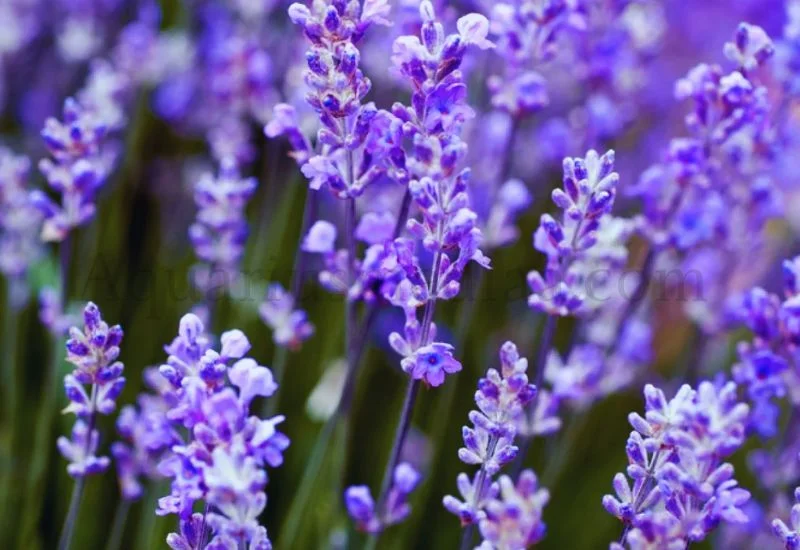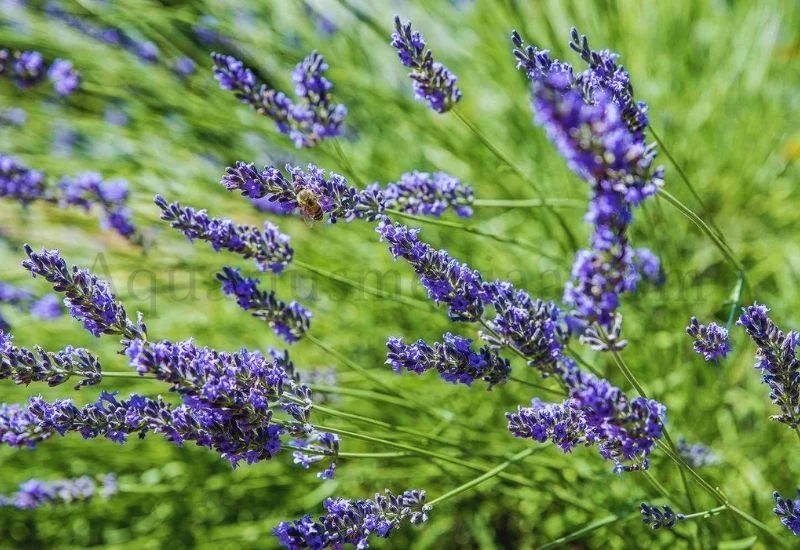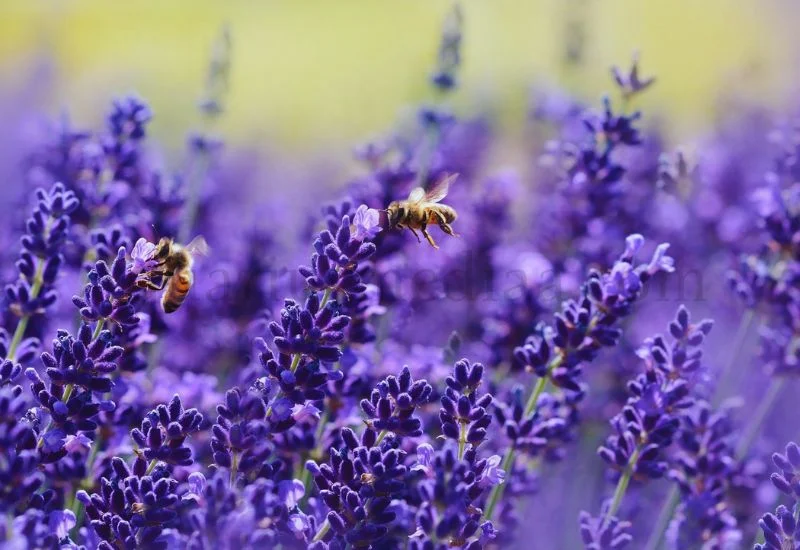Lavender is very commonly used at home in different forms. It proves very beneficial due to its unique chemical properties. But it is not as suitable for everyone. People who have pets in their homes may encounter different health issues with their pets due to lavender.
Lavender is toxic to pets, especially cats. One of the main reasons is the absence of enzymes in their digestive system. Due to this, they can’t digest the constituents, such as linalool and linalyl acetate.
However, you can protect your cats through specific treatments and preventive measures recommended by veterinarians. In the following blog post, there is a detailed discussion about the following things:
- Which lavender items are used in the home?
- How does lavender affect your cat?
- Why is lavender toxic to cats?
- How to treat lavender-affected cats?
Let’s start this discussion!
Most Common Lavender Products Used In Home
The lavender plant has 40 varieties. These are used in different products. However, lavender is most commonly present in three forms.
Lavender Oil
The oil is extracted from the lavender flowers. These are harvested from the fields. The flower buds are dried naturally in the normal sunlight and air. Then, the buds are passed through steaming and cooling processes to release the oil. This is raw oil, which is mixed with other constituents. This is used for different purposes, such as skin care, hair care, and air freshening.
Lavender plant
Lavender is a herbaceous plant with beautiful purplish flowers. Just like other household plants, it is also used for ornamental purposes. But here are some of the other reasons people grow it in their homes:
- This plant gives an amazing fragrance that can calm your mind. For this reason, it is used in soap, shampoos, and perfumes.
- Due to the presence of linalool and linalyl acetate, it is used in insect repellents to keep mosquitoes, flees, and moths away.
There are other health benefits of this plant, such as the treatment of insomnia, anxiety, depression, swelling, etc.
Dried lavender
Dried lavender again comes with different use cases. It is used in different places in the home, such as the following:
- Sometimes, the plants, along with their leaves and flowers, are dried to make them beautiful masterpieces for decorative purposes during celebrations.
- Dried lavender is used to make bags to keep clothes. As it produces a natural fragrance and repels insects, it will keep your clothes fresh.
- Dried lavender is used in different dishes for fragrant purposes.
People also add dried lavender to candles to produce fragrance along with light.
Toxicity of Lavender

Lavender is a famous plant known for its amazing benefits. One of the most famous products of lavender is its oil. It is composed of the following constituents:
- Linalool
- Linalyl acetate
- Lavandulol
- Geraniol
- Eucalyptol
- Camphor
- Limonene
Several other constituents can be present depending on the type of lavender oil used. It removes skin acne and wrinkles. Moreover, it boosts the hair growth. However, it is not safe for your pets.Not all the components in Lavender oil are toxic. The things that make Lavender harmful for cats are linalool and linalyl acetate.
Your cats are susceptible to the toxicity of Lavender and its oil products. One of the main reasons behind lavender poisoning is the absence of enzymes that can digest lavender or its products. Due to this, minute quantities of lavender can cause substantial health issues in them.
If your cat smells or licks, it will irritate the eyes and skin and damage the mucous membranes in the gastrointestinal tract. This can result in liver damage.
Common Symptoms of Lavender in Cats
All the cats will not have the same lavender effect on them. There are different factors on which it depends, such as the following:
- A cat can come in contact with Lavender by inhaling, licking, or biting the lavender plant.
- The type of lavender the cats are exposed to may be lavender oil, lavender plant, or dried lavender.
- The amount of lavender cats intake.
- The type of cat, age of cat, and health of cat, etc.
However, there are some general symptoms of lavender in cats. You should take your cat to a veterinarian whenever you observe any of them. Here are some of them:
- Drooling
- Lethargy
- Breathing problems
- Gait problems
- Irritation on the skin, especially the face and mouth
- Muscle tremors
- Redness or inflammation on lips, skin, gums, and tongue.
In severe cases, your cat may face vomiting, diarrhea, loss of appetite, and liver failure.
Is Lavender Toxic to Dogs?
The digestive systems of dogs don’t have digestive enzymes for this plant, which can prove harmful to their intestines. However, dogs can play in the lavender garden. Dilute quantities of lavender will not affect your dog.
But if your dog intakes huge amounts of lavender, it may show the following symptoms:
- Abdominal pain
- Constipation
- Vomiting
- Loss of appetite
- Diarrhea
- Intestinal problems
Therefore, closely supervise your dog when you allow them to play in the Lavender fields.
Basic Treatments of Lavender Poisoning

When you will observe any of the above symptoms, you should take your cat to a vet. You should take the items that have affected your cat for their examination, too. The vet will pass your cat from the full body physical examination. It includes the observation of all the apparent parts of your cat, checking any specific part with fingers or hands, listening to the breathing or heartbeat with a stethoscope, etc. Sometimes, the vet will do the urinalysis and blood test.
After examination, they will be able to know the extent of damage due to lavender poisoning. Depending on the type of problem, here are some basic treatments for lavender poisoning:
- Rehydration of cats to clean or remove the toxins from the liver and kidneys of cats.
- Insertion of the feeding tube in the stomach due to the gastrointestinal tract burn.
- Give anti-vomiting medicines to your cat.
During this treatment, you have to keep your cat under proper observation. At the same time, it is forbidden to induce vomiting in your cats at your home after lavender intake.
Safety Measures from Lavender Poisoning
Lavender poisoning can even cause the death of your cats. If you don’t have specialization or experience in treating lavender poisoning, you should not do treatment at home. Seek the help of a specialist for this purpose. So, you should protect your cat by following the safety measures given below:
- If you have lavender plants in your home garden, keep all lavender plants out of the reach of your cat.
- Don’t take any of the lavender products to your cat’s favorite places.
- Don’t use lavender oil or any oil with lavender constituents for cat massage purposes.
- Always read the constituent list before buying anything for your cat.
- Observe the licking habits of your cat and try to make no zone places where lavender oil or spray is applied.
Conclusion
You should not keep cats and dogs in the places where lavender products are kept. Moreover, you should train your pets to avoid such activities that can lead them to lavender products. At the same time, if you don’t have any specialization in treatment, you should take your affected cats to the vet immediately. This will avoid any further dangers.
